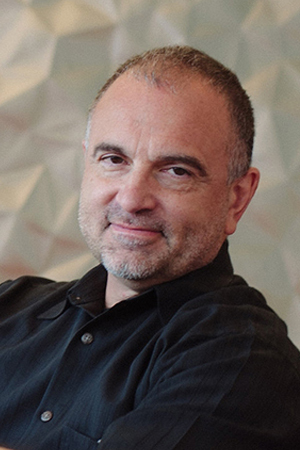Markets
Klick Health gathers biotech and pharma luminaries to discuss industry innovations, investments and future
At Klick Health’s first Ideas Exchange conference with biotech and pharma industry insiders since before the pandemic began, it was no surprise many…

At Klick Health’s first Ideas Exchange conference with biotech and pharma industry insiders since before the pandemic began, it was no surprise many conversations included Covid topics. Yet while vaccines and treatments were discussed, so too were the effects on drug development, federal responses, health inequities — and what to do now and next.
 George Yancopoulos
George YancopoulosGeorge Yancopoulos, chief scientist and cofounder of Regeneron, opened the conference responding to a question from Ron Cohen, CEO of Acorda, about the spotlight on the industry during Covid and some of the “flak” biopharma has taken in the past.
“I hope society recognizes that the impact that disease can have, measured as it was in the pandemic in the trillions, in terms of economics – and not even able to calculate the loss of life and suffering associated,” Yancopoulos said. “I hope that makes society realize that perhaps shouldn’t we be investing more than $30 million, for example, for NIH funding, but also investing a lot more in this great industry to protect ourselves against these catastrophic losses. I think we’re not doing enough.”
He attributed Regeneron’s speed in developing its early monoclonal antibody treatment REGEN-COV — along with work by Pfizer, Moderna, AstraZeneca and Eli Lilly — building on the companies’ decades of scientific development and investing. With much more needed, he pointed out.
“We have to recognize none of the existing solutions for disease and none of the existing solutions for climate change will save us. We need new solutions,” he said, which will only come from supporting next generations of talent and with investments “at much larger scales than we are today.”
 Rick Bright
Rick BrightFormer BARDA chief Rick Bright also talked about the need to invest and improve not only the current Covid response as it becomes endemic, but also the importance of trust and truth in those efforts. Bright headed BARDA under President Barack Obama, joining in 2016, but was removed and reassigned to a lower level NIH job by the Trump administration in April 2020. Bright subsequently filed a whistleblower complaint and testified before Congress about the government’s chaotic response to the pandemic.
“We hear a lot about the erosion of trust and to be trustworthy we have to be honest,” he said. “… From the outset of this pandemic, we didn’t have a lot of truth, honestly. So we need to make sure we’re not only getting the truth out, but make sure we’re translating the truth to something people can understand. When they see the development of a vaccine or monoclonal antibody therapeutic, as George said they don’t realize that it’s been a decade worth of work. That was skipped over for a political rhetoric to say ‘hey, I made a vaccine in a short period of time.’”
 Tal Zaks
Tal ZaksAlso taking the stage on a panel about personalized medicine was Tal Zaks, the former chief medical officer at Moderna and Spikevax Covid vaccine developer, who is now a partner at OrbiMed Advisors.
While the ideas of personalized medicines and mass market vaccines may seem incongruent, Zaks noted that “all medicine has always been personalized. We go to the doctor for treatment for ourselves, not our neighbor.”
In Covid-19 vaccines and treatments, for example, personalization comes into play for immunocompromised people and some cancer patients who don’t respond as well and need specific, different therapies. While costs, benefits and value are familiar topics in personalized medicine discussions, Zaks said the potential size of the patient pool for personalized medicines is less important to him than what they can deliver.
“Rather than look at the rise of personalized medicine as something that pharma went to because they couldn’t make money elsewhere, I take a different view. For me, the reason we’re talking about personalized medicine is because that’s what science has uncovered,” he said. “… The world of science and the world of technology is opening up opportunities for us to understand populations better — even in prevalent diseases. If you talk to pharma today, they’re actually not shying away from cardiovascular disease or neurological disease or diabetes, what they’re bringing to the fore is a much more nuanced way of understanding those populations and an individual’s risk factor.”
vaccines
medical
biotech
pharma
personalized medicine
medicine
vc

Wittiest stocks:: Avalo Therapeutics Inc (NASDAQ:AVTX 0.00%), Nokia Corp ADR (NYSE:NOK 0.90%)
There are two main reasons why moving averages are useful in forex trading: moving averages help traders define trend recognize changes in trend. Now well…
Spellbinding stocks: LumiraDx Limited (NASDAQ:LMDX 4.62%), Transocean Ltd (NYSE:RIG -2.67%)
There are two main reasons why moving averages are useful in forex trading: moving averages help traders define trend recognize changes in trend. Now well…
Seducing stocks: Canoo Inc (NASDAQ:GOEV 5.43%), Ginkgo Bioworks Holdings Inc (NYSE:DNA -1.12%)
There are two main reasons why moving averages are useful in forex trading: moving averages help traders define trend recognize changes in trend. Now well…














